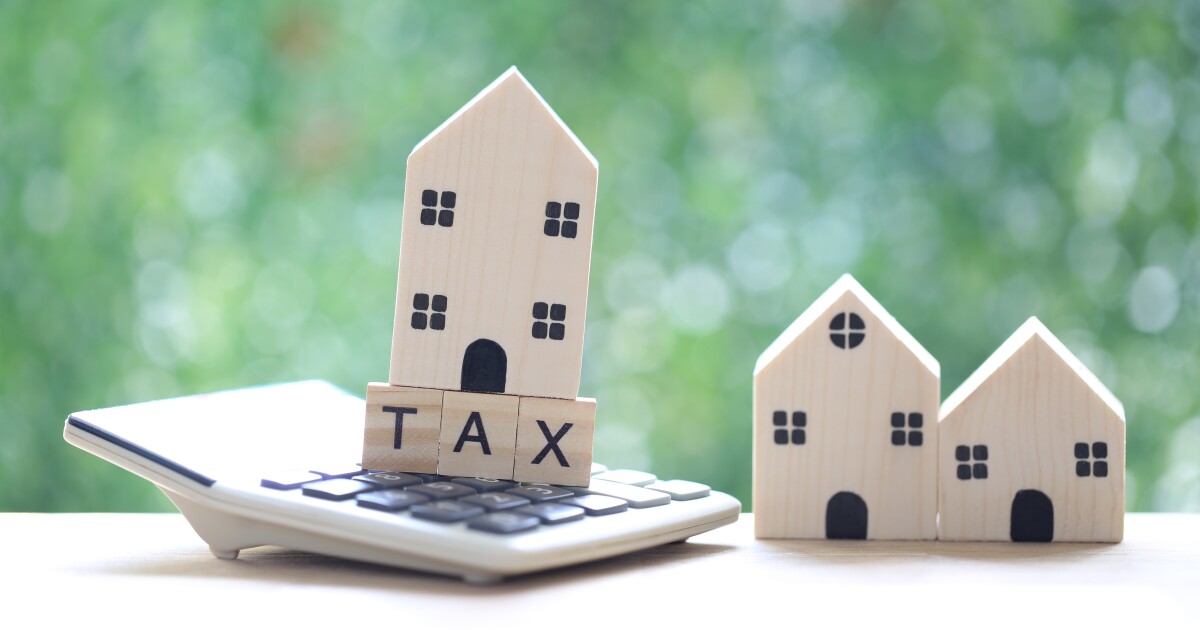
The national property tax delinquency rate accelerated last year, with data indicating potential emerging financial strain among some segments of mortgage borrowers.
The share of property tax delinquencies across the U.S. increased to 5.1% in 2024, rising from 4.5% one year earlier, according to a new report from real estate data provider Cotality. The research analysis solely covered the approximately 8 million mortgages where tax and insurance payments are not held in a separate escrow fund.
While the increase raises concern about some borrowers' ability to pay, the 2024 rate still came in below the recent historical average of 5.5% from 2012 to 2025. The last year property tax delinquencies surpassed 2024's level was in 2017, when it came in at 5.5%. By comparison the delinquency share sat at 8.2% in 2012 after the Great Financial Crisis.
But rising home prices in the past six years have similarly increased mortgage holders' financial burdens in the
"Many homebuyers assume that securing a mortgage means locking in stable monthly payments for the long term. However, rising home values often lead to higher property taxes, and over the past six years, this has become a reality for many homeowners," said Molly Boesel, Cotality's senior principal economist, in a press release.
Tax totals surged by more than 50% for homeowners in Colorado and Georgia. At the same time, states where average amounts due require the biggest share of a household median income were Vermont and Illinois at 11.2%.
"Whether they're paying off a mortgage or own their home outright, rising monthly costs can put pressure on household budgets. Those without sufficient financial buffers, such as steady income or savings, may find themselves struggling to keep up with growing tax bills," Boesel continued.
How delinquencies vary by state
Parts of the country where the highest rate of tax delinquencies appeared in 2024 were spread across the U.S., led by Mississippi with a 13.8% share, followed by New Jersey and West Virginia at 9.9% each. The District of Columbia and New Mexico rounded out the top five at 9.5% and 9.4%.
With the exception of the nation's capital, all of the leading states also rank among the top five in the historical 2012-to-2023 time frame.
State
On the other end, states where unemployment came in below the national average also ranked on the low end of property tax delinquency rates. Wisconsin had the smallest delinquency rate at 1%, followed by North Dakota at 1.1% and Wyoming at 2.3%. The three states also rank among the leading states for the lowest delinquency shares historically.
Cotality also found variation in delinquency rates between tax-lien and tax-deed states. In tax-lien states, where a property will not be sold unless the owner fails to pay off the lien in a set term, the share of delinquencies was 6.2% in 2024. The number fell to 4.9% among tax-deed jurisdictions, where local governments are able to sell the properties to cover the outstanding debt.
While housing researchers regularly note that the performance of the U.S. mortgage market remains solid, the rise in property tax delinquency levels corresponds with growing stress that has shown up in some pockets of mortgage borrowers.
Loan delinquencies
While FHA-backed loans make up approximately 12% of the U.S. mortgage market, they account for more than one-third of delinquent debt, according to data from the Federal Reserve Bank of New York.



